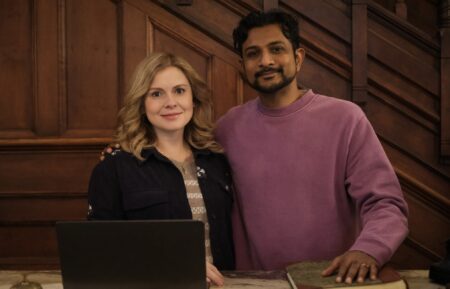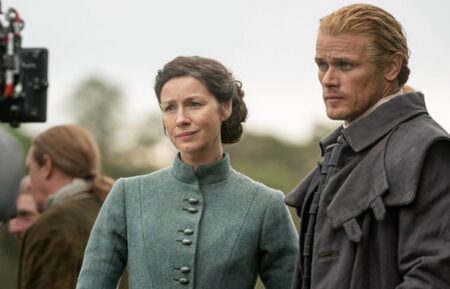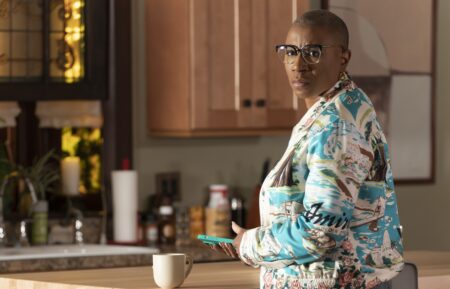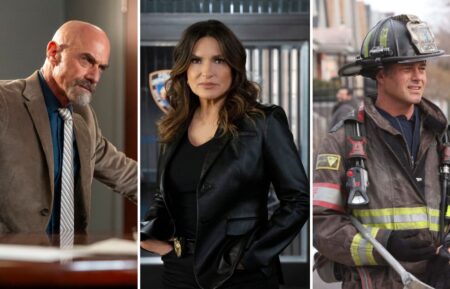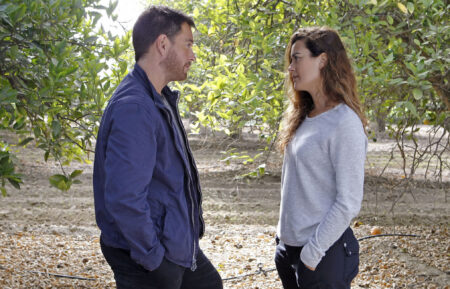‘Vice Versa: Chyna’ Doc Shines Light on WWE’s ‘9th Wonder of the World’
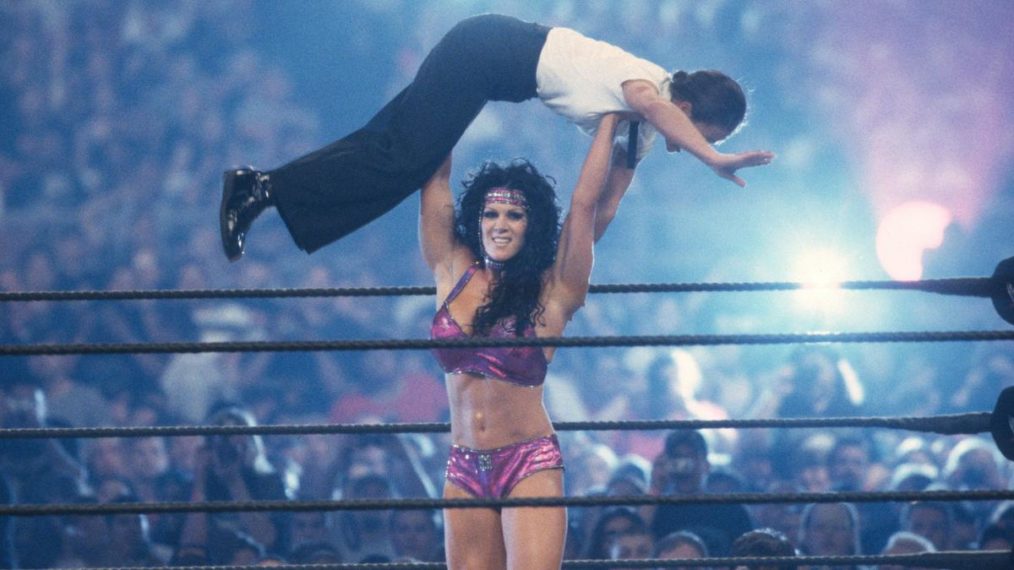
Q&A
Chyna was a fearless force who broke down barriers for women in pro wrestling. But behind her impressive physique and imposing presence was an internal pain rooted in traumatic experiences. The life of a beloved WWE icon, real name Joanie Laurer, ended prematurely after an accidental drug overdose in 2016 at age 46.
At the time, Chyna was about a year into filming for a documentary to usher in a comeback. Candid moments were captured including the reunion with her estranged mom, Jan LaQue. Though the project fell apart, director Marah Strauch has since picked up the pieces, using a good amount of archival footage for Vice Versa: Chyna.
The upcoming authorized doc coming to VICE TV peels back the many layers of the star. LaQue, sister Kathy Hamilton, Sean Waltman, Mick Foley, Dr. Drew Pinsky, Billy Gunn, and Vince Russo are among those interviewed. Here, Strauch talks about the making of the first-ever documentary of Chyna.
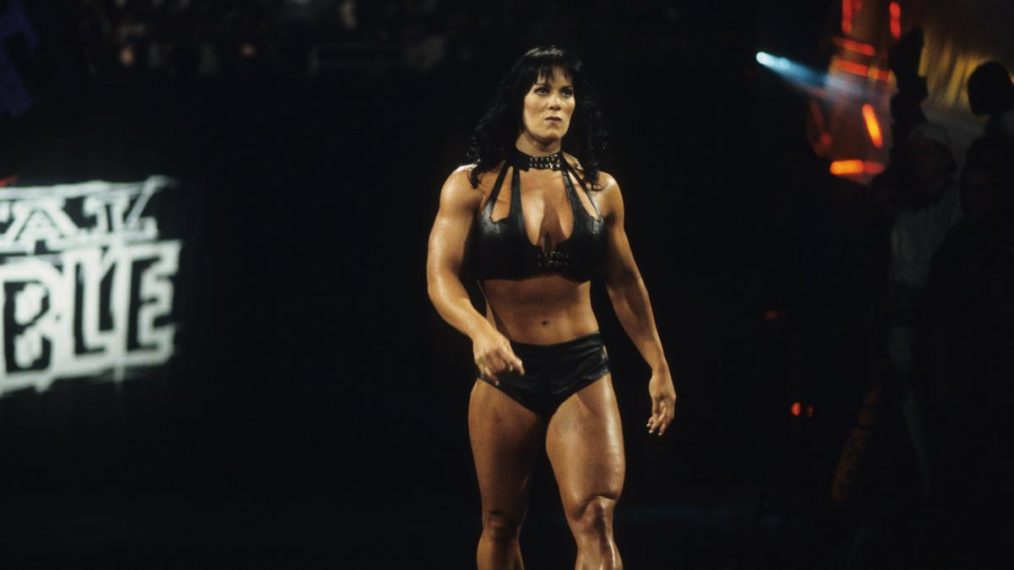
WWE
How much did you know about Chyna’s story before you really got into the weeds?
Marah Strauch: I didn’t know anything about her when I came on board. So, I definitely had fresh eyes not coming from the nostalgia of the wrestling world. For me, it was something that once I learned about her story I was really excited and wanted to be involved.
As you went down the rabbit hole, what about her life struck you?
Since I didn’t know much about wrestling, I never really thought about who is a wrestler. For me, learning about Joanie, I really got to understand she is this really intelligent and thoughtful and interesting and a self-motivated person. I loved the story of how she got into wrestling. I love the story about anyone who pursues something passionately.
Tell me about her mom’s involvement.
She was one of the last interviews we were able to get. She was making another documentary before ours. That previous one kind of fell apart. I guess we were in the right place at the right time. We feel very fortunate that she interviewed with us. We were able to get her take on the story as well, which I think without that, it would have been a very limited film in terms of understanding her childhood.
Chyna is known for finding success in a male-dominated industry. How much did her story resonate with your own?
So much so, but here is the sad part. She was in the WWE in the late 1990s into the early 2000s. What she did during such imposed limitations. In this scenario, you do have to be a strong character to survive. She was, but I definitely think it took a toll.
How hard was it to decide what footage you were going to use?
If I were to have my way we would have had a four-hour documentary. I think it was very difficult to boil it down. Her story has so many twists and turns and so much that happens. We have this two-hour block on VICE. I feel like we did our best to tell the most important parts and really do it in a way you’re enjoying it from Chyna’s point of view. This is a really sad story, but it’s also really beautiful and energizing. There are so many elements of it that will take you through an emotional journey as a filmmaker. For me, it was a difficult film to make emotionally.
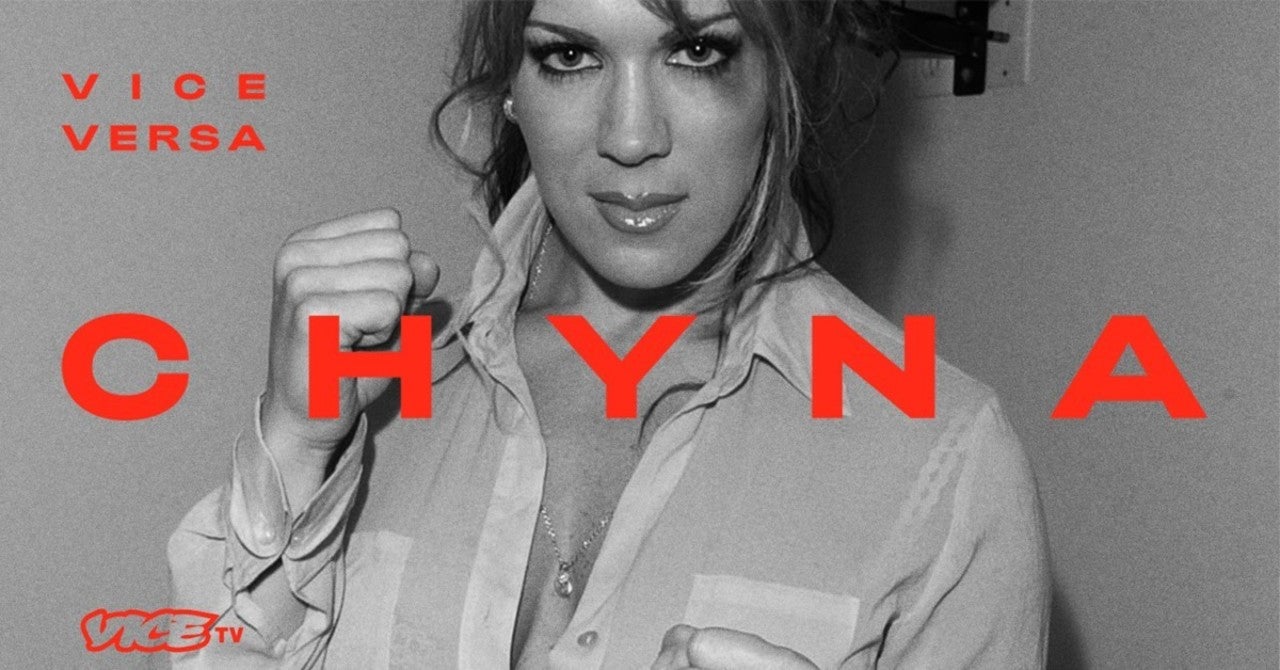
VICE TV
How important was it for you to tell those dark sides but also balance them out with the positive things?
Her sister said it but I don’t think we put it into the film. The bad part of her career felt kind of longer than the good part of her career. She had this amazing ride. Then there is a lot of pain about not being able to reach the pinnacle again. I think it’s very hard to make a film that is inspiring but also to tell the truth about how hard that ride can be once you hit a plateau and go to the other side. I think a lot of celebrities and people in sports experience this. It was definitely a balancing act. I think at the end of the day her story should be inspiring to a lot of people.
How would you compare how the documentary is presented to the VICE TV series Dark Side of the Ring?
[The film] is its own thing. Vice Versa is a documentary series that is really about challenging the status quo and really bringing forth dialogue about difficult subjects. Although this film is about wrestling, it’s also about the human experience behind the wrestlers and wrestling. In that sense, it is similar to Dark Side. The executive producer of the series really talked to me while I was making this film, helping me understand the wrestling world better.
Did Chyna’s family get a chance to screen it yet?
They’ve got the screeners right now. Hopefully, they’ll like it. I’m on pins and needles, but ultimately as a documentarian and filmmaker, I have to put forth what I see in the footage and the interviews. You do your best to make everyone happy. At the end of the day, this one will be loved and hated. It’s the first film I’ve made that I feel not everyone is going to love it, and I have to be okay with that.
What do you think are the parts that will be considered polarizing?
The fact there was this documentary being made during the last part of her life is difficult. The footage is difficult. I think it’s very important because it’s real, but I don’t think it will be easy for people to see if you only see her as your wrestling hero. My interest in the film was about humanizing her and having compassion for her.
What do you ultimately want people to walk away with?
Childhood trauma sometimes, or always as Dr. Drew would say, leads to addiction or can lead to addiction. A lot of addicts had childhood trauma. It’s about having compassion for a person who had childhood trauma but also in their adult life. I hope people will walk away with the idea that she was a human being; a really talented, amazing, vivacious human being. But she had challenges like we all do.
Vice Versa: Chyna, Documentary Premiere, Thursday, June 17, 9/8c, Thursday, VICE TV


